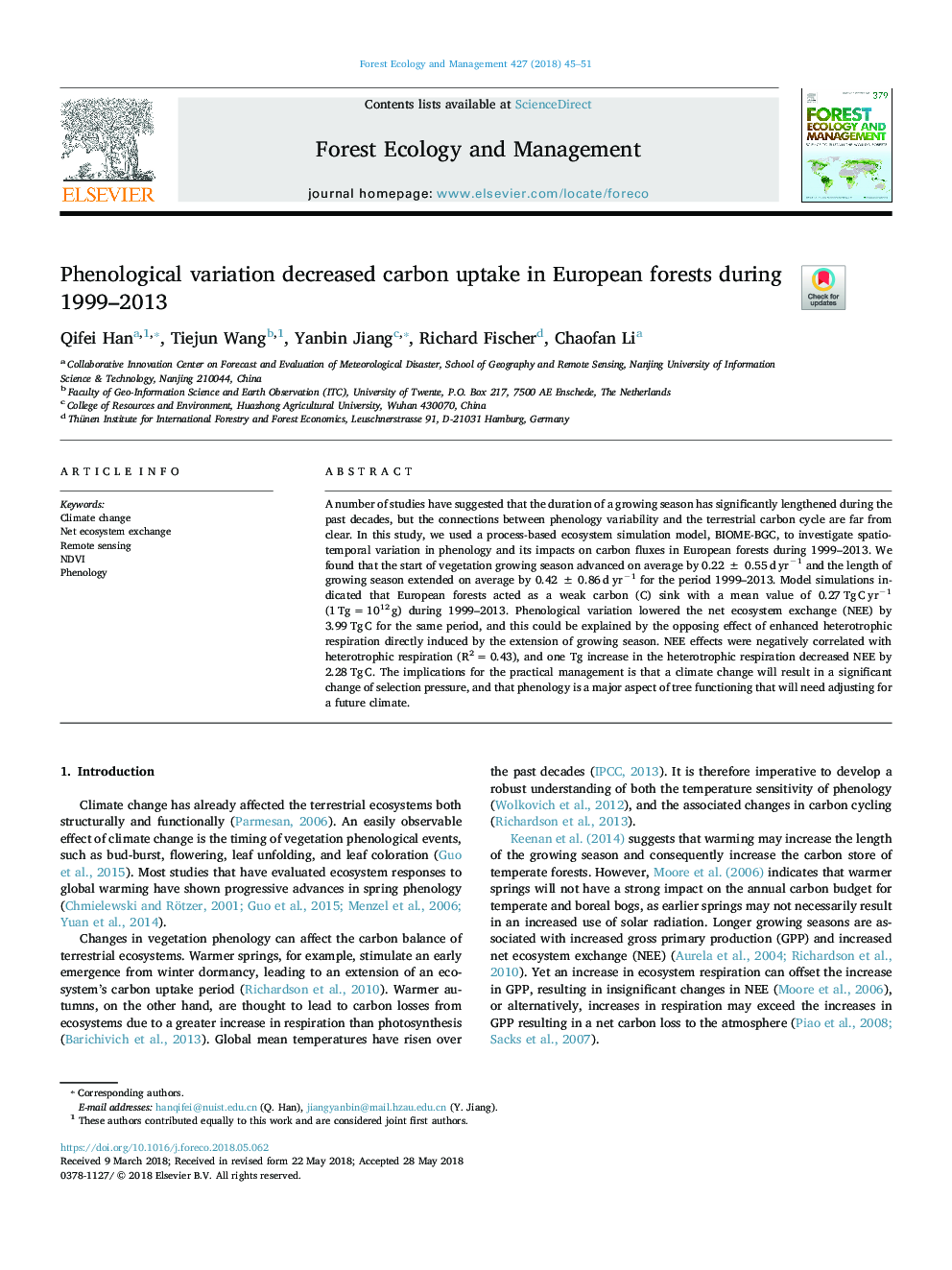| کد مقاله | کد نشریه | سال انتشار | مقاله انگلیسی | نسخه تمام متن |
|---|---|---|---|---|
| 6541492 | 1421333 | 2018 | 7 صفحه PDF | دانلود رایگان |
عنوان انگلیسی مقاله ISI
Phenological variation decreased carbon uptake in European forests during 1999-2013
ترجمه فارسی عنوان
تنوع فنولوژیکی در سالهای 1999 تا 2013 باعث کاهش جذب کربن در جنگل های اروپایی شد
دانلود مقاله + سفارش ترجمه
دانلود مقاله ISI انگلیسی
رایگان برای ایرانیان
کلمات کلیدی
موضوعات مرتبط
علوم زیستی و بیوفناوری
علوم کشاورزی و بیولوژیک
بوم شناسی، تکامل، رفتار و سامانه شناسی
چکیده انگلیسی
A number of studies have suggested that the duration of a growing season has significantly lengthened during the past decades, but the connections between phenology variability and the terrestrial carbon cycle are far from clear. In this study, we used a process-based ecosystem simulation model, BIOME-BGC, to investigate spatio-temporal variation in phenology and its impacts on carbon fluxes in European forests during 1999-2013. We found that the start of vegetation growing season advanced on average by 0.22â¯Â±â¯0.55â¯dâ¯yrâ1 and the length of growing season extended on average by 0.42â¯Â±â¯0.86â¯dâ¯yrâ1 for the period 1999-2013. Model simulations indicated that European forests acted as a weak carbon (C) sink with a mean value of 0.27â¯Tgâ¯Câ¯yrâ1 (1â¯Tgâ¯=â¯1012â¯g) during 1999-2013. Phenological variation lowered the net ecosystem exchange (NEE) by 3.99â¯Tgâ¯C for the same period, and this could be explained by the opposing effect of enhanced heterotrophic respiration directly induced by the extension of growing season. NEE effects were negatively correlated with heterotrophic respiration (R2â¯=â¯0.43), and one Tg increase in the heterotrophic respiration decreased NEE by 2.28â¯Tgâ¯C. The implications for the practical management is that a climate change will result in a significant change of selection pressure, and that phenology is a major aspect of tree functioning that will need adjusting for a future climate.
ناشر
Database: Elsevier - ScienceDirect (ساینس دایرکت)
Journal: Forest Ecology and Management - Volume 427, 1 November 2018, Pages 45-51
Journal: Forest Ecology and Management - Volume 427, 1 November 2018, Pages 45-51
نویسندگان
Qifei Han, Tiejun Wang, Yanbin Jiang, Richard Fischer, Chaofan Li,
